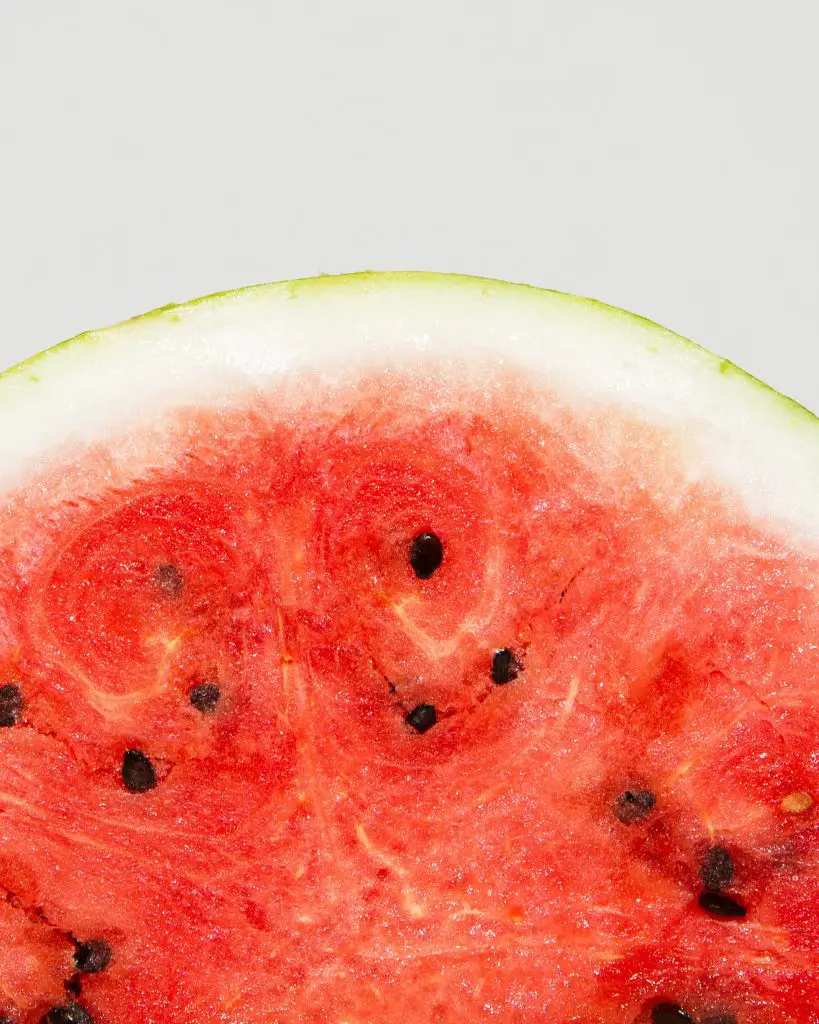Do Deer Eat Watermelon? Watermelon is one of the most popular vegetables to grow in the garden and will produce a large crop in the right conditions. However, if you live in an area that has a significant deer population you may want to know whether deer eat watermelon and also what you can do to protect your crop.
Deer do you eat both the watermelon plant and the fruit if given the opportunity. They will chew through the rind of the fruit when it’s ripe and eat the inner flesh of the melon. This means that it is necessary to protect the crop from deer attacks.
Deer will also eat most other edible crops that you grow in your vegetable garden so when you’re thinking about protecting your watermelon plants consider all the other vegetables that are available for our four-legged friends.

How To Stop Deer From Eating Your Watermelon
Deer are a particularly persistent pest that will cause problems on a regular basis particularly in areas where there is a large population. As a result of their persistence, there are not many methods that are completely effective at protecting crops.
The only exception to this is to exclude the deer entirely from the vegetable garden by fencing them out of the garden or fencing small sections of the garden that have plants that you could particularly want to protect.
To keep deer out of your garden completely you will need to erect an 8 ft fence. The height of the fence may seem excessive however academic studies have shown that deer routinely jump over 6 ft fences. To read more about this click here.
For many people erecting a fence to protect their entire property is impractical and cost-prohibitive. The alternative method is to protect just the plants that you are most concerned about. An example of this approach is shown in the picture below where are gardener has protected the individual plots of his vegetable garden.

If fencing is not an option the other methods that are commonly used are chemical deer repellents or mechanical repellent systems. These devices vary in their degree of effectiveness, however, they are generally significantly cheaper than erecting a fence.
Which Deer Repellent Systems Are The Most Effective?
As mentioned above deer repellent systems can be divided into chemical repellents and mechanical repellent systems. In general, the chemical repellents are significantly more effective than the mechanical systems.
Chemical Deer Repellents
Chemical deer repellents can be divided up into three different types fear-inducing, pain-inducing, and taste and smell repellency methods. Of these three types of repellents, fear-inducing are the most effective according to academic studies that have been conducted.
These fear-inducing repellents are generally made from things such as coyote urine, blood, and putrified egg. Putrified egg is effective because it emits smells that are similar to common predators.
However, even these repellents have their limitations. academic studies have shown that even the most effective repellents only lasts for approximately 10 to 12 weeks. After that period the deer become acclimatized to the smell and begin to start feeding again even if the repellents are reapplied to the plants. To read more click here.
To reduce the chances of damage when using chemical repellents we generally recommend that you purchase at least two different types of repellents. The two products we recommend are deer out and plantskydd because they are both fear-inducing repellents that are based on different ingredients and therefore have a different smell. To see the latest price click on the links to visit Amazon.

Mechanical Repellents
Within mechanical repellents, there are three general types, motion-activated sprinkler systems, ultrasonic systems, and predators’ eyes which is a device that mimics the appearance of predator eyes at night.
Of these devices is the most effective appears to be the sprinkler systems however there isn’t the same degree of research associated with these types of devices. However, the research that I have been able to find indicates that they are generally not quite as effective as chemical repellents.
The research indicates that over an extended period of time these devices do not significantly impact the deers’ feeding habits. However, there is some value associated with using them as just one part of your deer defense system. If used sparingly they can be quite effective at scaring deers for very short periods of time which if we’re thinking about watermelons would be at the period in which the fruit is ripe and at its most tempting for the deer.
It is advisable to move them around the garden to ensure that the deer remain surprised when they’re activated and also turn them on and off periodically so that they do not become too accustomed to them.
If you are considering purchasing one the one we recommend is the Orbit 62100 Yard Enforcer because it has a 40 ft detection range and 120 degree view. To see the latest price on Amazon click here.
The second type of device which is commonly offered in the marketplace is the ultrasonic devices. These devices have had substantially more research conducted on them and the overwhelming outcome of this research has been that these devices have no effect upon animals which include deer and also things like rodents. As such we would not recommend that you purchase one of these devices because it’s simply will not work.
The other device that is available is Predator eyes, this type of device does not have any significant research from academia associated with it as a result of this I have had to rely upon the feedback of customers who have purchased items like this.

Unfortunately, the response I have seen for these types of devices is largely negative with most people being quite disappointed with the performance of the device. There have also been reviews that have included video footage of them operating at night. These videos generally show how ineffectual these devices are.
One example of this shows a deer standing right next to a set of predator eyes eating the plant that it is supposed to be protecting which suggests that even if these items are effective they are not effective for very long.
I hope you found this post useful and are able to successfully grow your watermelon without having too many deer problems. If you have any comments or additional questions please leave them in the section below.
Relevant Articles
What is The Best Watermelon To Grow?
What Are There Different Types of Watermelon?
How Many Watermelon Per Plant?
